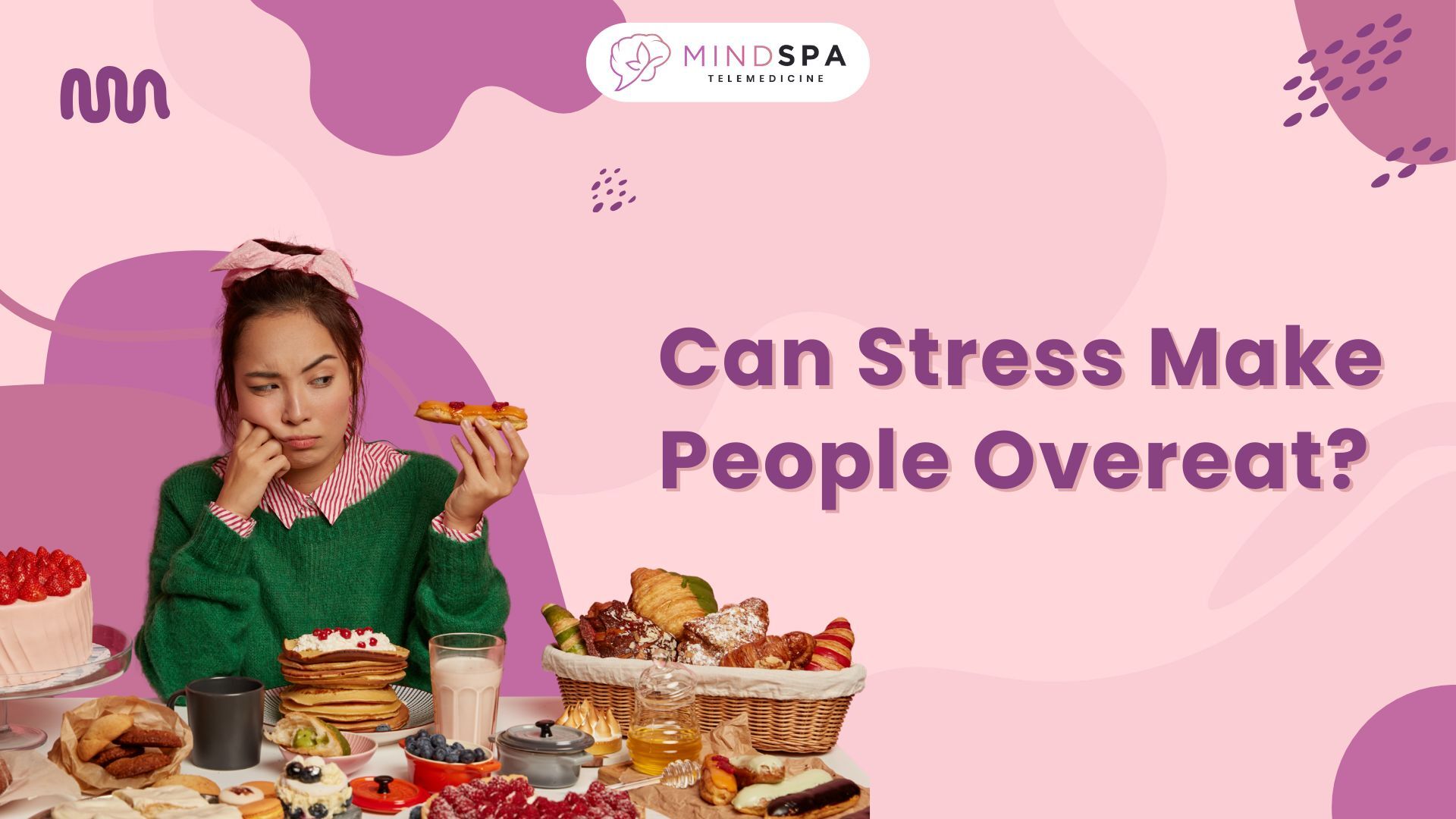Everyone goes through stress sometime or the other. Stress can negatively impact our mental and physical health over work, relationships, or any other unfavorable situation that we have encountered in our lives. One unexpected way stress acts is to overeat. Out of comfort, many people turn to food when life gets overwhelming. But why does this happen? Is there also a way of breaking the cycle?
What is Stress Eating?
Emotional eating, also known as stress eating, refers to the act of eating to cope with emotions instead of using hunger. It may happen if you are feeling anxious, sad, or overwhelmed. Instead of having a healthy snack, you may reach for chips or chocolate. or ice cream. Food is supposed to give comfort from stressful situations or to distract you from them.
How Does Stress Affect Your Body?
The response is produced when the body is stressed. In your body, cortisol is released when you are stressed. Cortisol is the name of this stress hormone. It does, however, affect your hunger in dealing with stress. Extreme high cortisol can drive a person into overeating, becoming more hungry, and craving more fat or higher calorie foods.
Your brain can also be affected by stress. When you’re stressed, your brain looks for a quick reward, like food, to make you feel better. It can result in overeating because your brain associates eating with feelings of relief or pleasure. This cycle can become progressively harder to break over time, particularly if you are never stressed.

The Link Between Stress and Overeating
Many people have heard of the idea of comfort food. When we are stressed out or sad, these are the foods to eat. What is going on behind the scenes? Stress is a trigger for an emotional response, the emotion leading us to feel that we need certain foods.
Studies show that when we’re under stress, we’re more likely to choose foods that are high in sugar, fat, or salt. These foods can temporarily boost your mood, giving you a sense of relief.
But this relief is often short-lived. After the initial comfort, stress, and overeating can lead to feelings of guilt or regret. This can make the stress even worse, leading to a cycle of stress eating.
A study found that stress can lead to overeating, especially foods that are high in fat and sugar. The study showed that chronic stress can make people prone to overeating and choosing unhealthy foods.

Why Do We Choose Junk Food?
When you are stressed, many people eat junk food. This is because junk foods (such as chips, cookies, or fried food) are mostly rich in fat and sugar. These foods can cause your brain to release dopamine, which gives you a feeling of pleasure. The fix is quick but doesn’t fix the problem.
However, fruits, vegetables, and lean proteins do not provide you with that immediate reward. Your brain desires instant gratification if you are stressed. Junk food provides that, making it harder to resist.

Can Stress Make You Gain Weight?
It is also true that being stressed can cause weight gain. Your body may keep pumping out cortisol if you are perpetually stressed. If too much is eaten, it can cause the body to store fat, especially around the belly. It can contribute to gaining weight over time.
In addition, when people use food for emotional stress, they don’t pay any attention to portion sizes or nutritional value. As a result, you may overeat and you eat more calories than you need to.
How to Stop Stress Eating
It can be hard to break the cycle of stress eating, but it’s possible. Here are some tips to help you manage stress without turning to food:
1. Identify Your Triggers
The first one is to discover what’s causing it. Is it work? Family problems? Financial issues? Consequently, once you learn the triggers, you can evolve ways of dealing with it.
2. Practice Mindful Eating
Mindful eating means paying full attention to what you’re eating. It involves eating slowly, savoring each bite, and noticing how the food makes you feel. This can help you become more aware of your emotional eating habits.
3. Find Healthy Alternatives
Instead of reaching for junk food, try healthier alternatives. When you feel the urge to snack, go for a piece of fruit, a handful of nuts, or some yogurt. These foods are nourishing and can help curb your cravings without leading to overeating.
4. Exercise
Exercise is a great way to reduce stress. Physical activity releases endorphins, which are chemicals in the brain that help reduce stress and improve mood. Even a short walk or some yoga can make a big difference.
5. Get Enough Sleep
Lack of sleep can make stress worse. When you’re tired, you’re more likely to crave unhealthy foods and feel stressed. Aim for 7-9 hours of sleep each night to help your body recover and manage stress better.
6. Seek Support
Talking to someone about your stress can help. Whether it’s a friend, family member, or therapist, sharing your feelings can relieve some of the pressure. Social support is key to managing stress in a healthy way.
If you’re finding it hard to cope with stress and overeating, consider seeking professional support. Therapists can help you explore the root causes of your stress and guide you toward healthier coping methods. Request an appointment with a therapist today.

Conclusion
Stress can make people overeat. The release of cortisol and the emotional need for comfort can trigger cravings for unhealthy foods. However, by understanding the link between stress and eating habits, you can take steps to manage stress in healthier ways.
Practicing mindful eating, finding healthier alternatives, and making time for self-care are all great strategies to reduce stress eating. Remember, it’s about progress, not perfection. Taking small steps to manage stress can lead to big changes in your health and well-being.
If you’re struggling to manage stress and overeating, consider seeking professional support. Reach out for an appointment today and start your journey to a healthier, more balanced life.
Frequently Asked Questions
How does stress cause overeating?
Stress releases cortisol, which increases hunger and cravings for high-fat or sugary foods. This can lead to overeating and unhealthy food choices to temporarily relieve stress.
Can stress lead to weight gain?
Yes, constant stress can cause weight gain. The body stores fat, especially around the belly, due to increased cortisol. Emotional eating can also lead to consuming excess calories.
How can I stop stress eating?
Identify your triggers, practice mindful eating, choose healthy snacks, exercise regularly, and get enough sleep. These strategies can help you manage stress without turning to food.
Can therapy help with stress eating?
Yes, therapy can help by addressing the root causes of stress and teaching healthier coping strategies. A therapist can support you in breaking the cycle of emotional eating.


